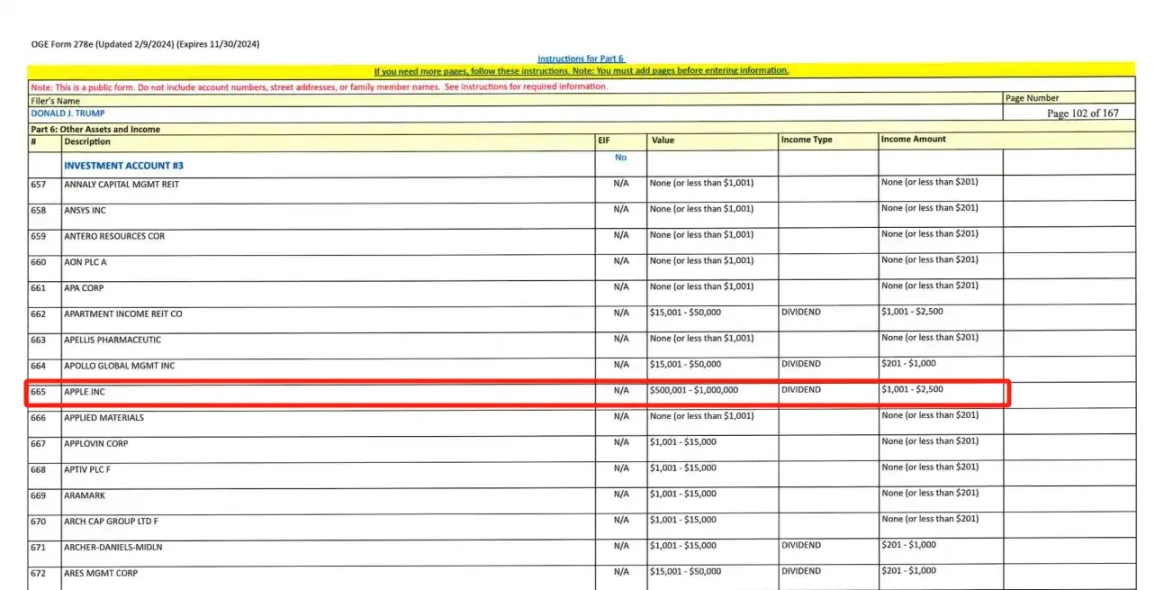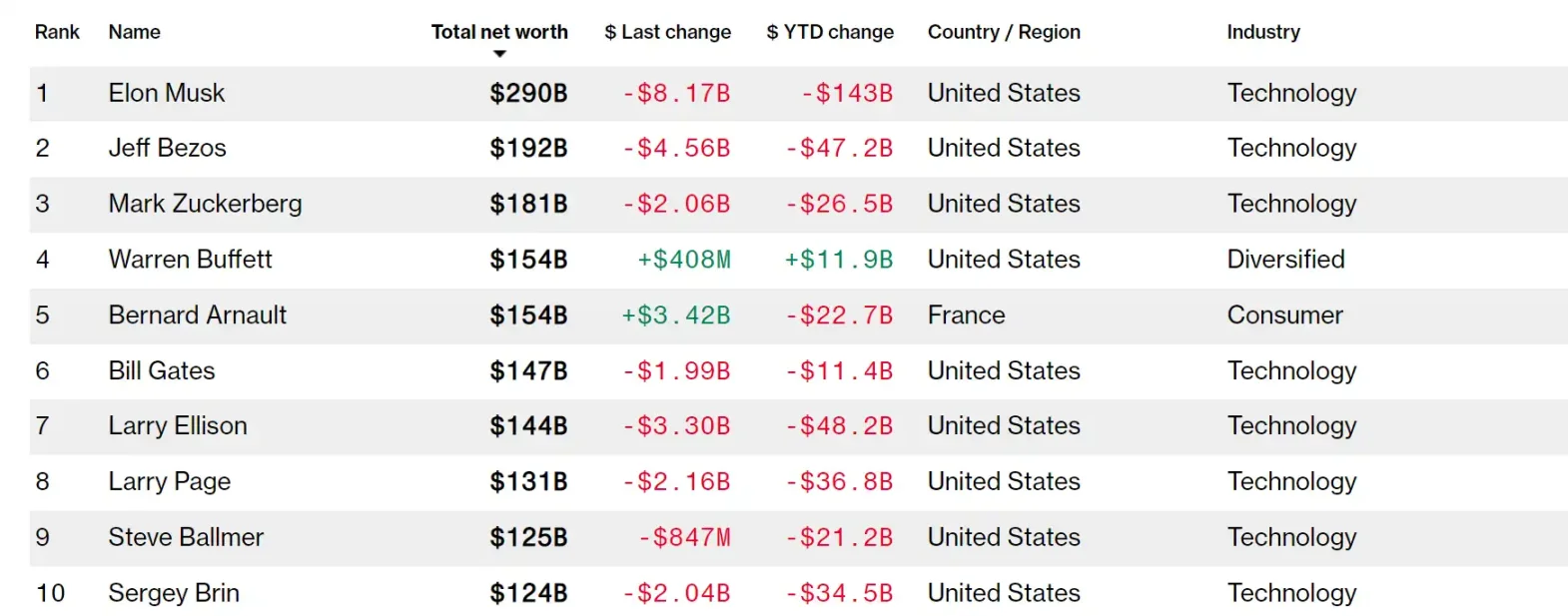Written by: Penny
Since Trump announced "reciprocal tariffs" on major trading partners including China, Japan, and Vietnam on April 3rd, global stock markets have experienced varying degrees of plummeting - with a historic crash in US stocks. After the policy announcement, NASDAQ futures dropped 4.7% in a single day, S&P 500 futures fell 5%, and Dow Jones futures plunged 1,822 points. As of April 9th, the S&P 500 index had fallen 18.9% from its February peak, with market value evaporating by $5.8 trillion, creating the most severe four-day losing streak since 1950. Tech stocks were the hardest hit, with Apple's stock price plunging 23% in four days, and seven major tech giants losing a combined market value of $1.65 trillion, directly stemming from supply chain interruption risks - with Apple relying on Asia for 75% of its components and facing massive tariff cost transmission pressure. Bloomberg statistics show global stock market total value shrank by $10 trillion, with Vietnam's stock market dropping over 6% in a single day, Nikkei 225 plummeting nearly 3%, and Europe's top three indices falling over 1%.
With the nest overturned, no egg can remain intact. As global investors mourned, Trump himself was not spared in this global market crash.
Personal Wealth "Backlashed" by $500 Million
According to Forbes' April 8th report, Trump's estimated net worth was $4.7 billion when he announced the massive tariff plan on April 2nd. However, within a week, his assets dropped to $4.2 billion, evaporating $500 million. The largest portion of his personal wealth loss came from Trump Media and Technology Group, whose stock price dropped about 5% since April 3rd, with Trump holding 114.75 million shares, causing approximately $170 million in total asset evaporation.
Additionally, Trump holds substantial stakes in major tech giants. According to Federal Election Commission (FEC) regulations, presidential candidates must submit personal financial disclosure reports by May 15th annually, covering assets, liabilities, and income sources, including stock investments. His 2024 report shows holdings in Apple, Microsoft, NVIDIA, Amazon, Alphabet (Google), Meta Platforms, Berkshire Hathaway, PepsiCo, and JPMorgan Chase, valued between $100,000 and $1 million, with Apple, Microsoft, and NVIDIA holdings exceeding $500,000. The total stock value ranges from $2.25 million to $4.75 million, which could significantly impact his wealth if positions remain unchanged.

Image source: Trump's personal financial disclosure report
Moreover, the US President's real estate asset portfolio value decreased from $660 million to $570 million, losing about $90 million. His golf-related assets also suffered losses, as many golf balls, clubs, and shirts sold in professional shops depend on imports.
Furthermore, Trump's family crypto project WLFI experienced massive losses from ETH trading. On April 9th, according to Lookonchain monitoring, a wallet suspected to be related to WLFI sold 5,471 ETH at an average price of $1,465, receiving $8.01 million. The address previously spent approximately $210 million buying 67,498 ETH at an average price of $3,259, currently facing an unrealized loss of around $125 million.
World's Richest Individuals Lose Billions
The Guardian reported that from April 3rd to 4th, the world's 500 wealthiest individuals lost $536 billion in stock market trading, the largest two-day wealth loss recorded in the Bloomberg Billionaires Index. Several wealthy individuals who supported Trump or attended his January inauguration saw their wealth shrink, with Elon Musk and Mark Zuckerberg being the most impacted.

Bloomberg Billionaires Ranking as of April 9th
Global top billionaire Elon Musk, Tesla's CEO, saw his wealth dramatically shrink, losing $31 billion by last Friday's close. From the beginning of the year to now, Musk's wealth has decreased by approximately $143 billion, though he remains the world's richest person with a net worth of $290 billion.
Facebook founder and Instagram/WhatsApp owner Mark Zuckerberg ranked second, losing over $27 billion. As the world's third-richest person with an estimated net worth of $181 billion, he was severely impacted by Meta's market value collapse, with the stock dropping nearly 14% in two days. Many global companies rely on Asian markets for manufacturing, computer chips, and IT services - regions most targeted by Trump's tariffs. Zuckerberg's personal wealth has evaporated over $26.5 billion this year.
Amazon founder and Washington Post owner Jeff Bezos ranked third, losing $23.5 billion in two days. As a leading importer of goods, Amazon's market value has shrunk by billions this year. Chinese sellers occupy over 50% of Amazon's third-party market, and its cloud services primarily depend on technology from Asian manufacturers. Bezos is the world's second-richest person with an estimated net worth of $192 billion, having lost $47.2 billion in wealth this year.
Despite the two-day market crash, not all billionaires saw wealth reduction. Warren Buffett, Berkshire Hathaway's chairman and largest shareholder, has seen his wealth increase to $154 billion this year. During the two-day market collapse, he lost $2.57 billion but has still gained $11.9 billion in net worth this year.
Trump's tariff policy represents a high-risk experiment deeply linking personal political pursuits with financial markets. The massive wealth evaporation of Trump and other global billionaires not only exposes the conflict of interest between policymakers and capital markets but also reveals the self-contradiction of "protectionism" in the globalized era - when politicians attempt to build walls with tariffs, their own wealth empires are often the first to collapse. For investors, this storm once again validates an iron law: in a highly interconnected global market, no one can truly remain unaffected.








